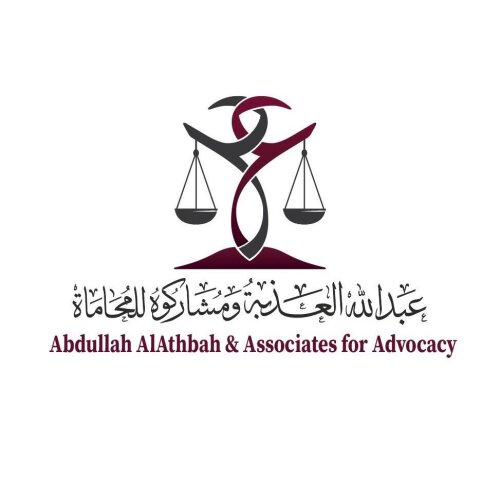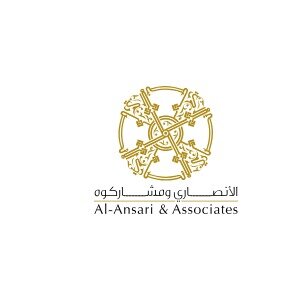Best Public-Private Partnerships (PPP) Lawyers in Qatar
Share your needs with us, get contacted by law firms.
Free. Takes 2 min.
Or refine your search by selecting a city:
List of the best lawyers in Qatar
About Public-Private Partnerships (PPP) Law in Qatar
Public-Private Partnerships (PPP) are cooperative agreements between government entities and private sector companies to develop, finance, operate, or maintain projects and services that have public interest. In Qatar, the PPP model plays a vital role in diversifying the economy and attracting private investment, particularly in sectors like infrastructure, healthcare, education, and energy. The legal framework governing PPPs in Qatar was notably enhanced with the introduction of the Law No. 12 of 2020 on Regulation of Public-Private Partnerships, commonly known as the PPP Law. This law sets clear guidelines for structuring, approving, and managing PPP projects, aiming to boost efficiency and foster innovation while balancing the interests of both public and private parties.
Why You May Need a Lawyer
Engaging in a PPP project in Qatar involves complex legal, regulatory, and financial considerations. You may require legal support for various reasons, including:
- Understanding your rights and obligations under local PPP laws and related regulations
- Drafting, reviewing, or negotiating partnership contracts and project agreements
- Adhering to government procurement procedures and ensuring regulatory compliance
- Participating in competitive bidding processes and addressing bid challenges or disputes
- Structuring project financing, managing risk allocation, or securing necessary permits and approvals
- Resolving disputes between public and private parties, either through negotiation, arbitration, or litigation
- Ensuring protection of intellectual property, confidentiality, or proprietary technology involved in the project
- Assisting in project amendments, extensions, or early terminations
A lawyer experienced in PPP can provide guidance at every stage, ensure your interests are protected, and help facilitate the successful completion of your project.
Local Laws Overview
Qatar’s PPP Law (Law No. 12 of 2020) establishes the primary legal structure for PPP projects, detailing the procedures for the selection, implementation, monitoring, and termination of PPPs. The main highlights include:
- A clear definition of PPP arrangements, outlining eligible sectors and types of contracts (such as Build-Operate-Transfer, Build-Own-Operate, and management contracts)
- The Ministry of Finance as the main regulatory body overseeing PPP projects, including the formation of technical committees
- A set of procedures for transparent and competitive project selection, including pre-qualification and bidding processes
- Requirements for conducting feasibility studies, risk assessments, and value-for-money evaluations
- Guidelines for government guarantees, financial support, and dispute resolution mechanisms
- Measures for performance monitoring and contract management throughout the project lifecycle
The PPP Law is complemented by relevant executive regulations, procurement rules, and sector-specific standards. Adherence to these ensures project legality and long-term sustainability.
Frequently Asked Questions
What is the definition of a PPP in the context of Qatar?
A PPP in Qatar is an arrangement where a government body enters into a long-term contract with a private sector entity for the development, financing, operation, or maintenance of public infrastructure or services, as regulated by the PPP Law.
Which sectors are open for PPP projects in Qatar?
PPP projects are commonly pursued in sectors such as transportation, education, healthcare, real estate, utilities, waste management, and energy, subject to government priorities and approval.
What is the legal basis for PPPs in Qatar?
The legal foundation is Law No. 12 of 2020 on the Regulation of Public-Private Partnerships, along with its executive regulations and other relevant legislation.
Who supervises and regulates PPP projects in Qatar?
The Ministry of Finance supervises PPPs in coordination with relevant authorities, and establishes technical committees to review and approve PPP proposals.
How are PPP projects awarded?
PPP projects are typically awarded through a transparent and competitive tendering process involving pre-qualification, bidding, and evaluation based on feasibility, value for money, technical capability, and financial offer.
What are the typical contract models used in Qatari PPPs?
Common models include Build-Operate-Transfer (BOT), Build-Own-Operate (BOO), Build-Lease-Transfer (BLT), lease contracts, and management or service contracts, depending on project requirements.
What approvals are required for a PPP project?
Projects need approval from the Ministry of Finance and other relevant authorities, with requirements for feasibility studies, risk assessments, and sometimes Cabinet-level endorsement for significant projects.
Can foreign companies participate in PPP projects in Qatar?
Yes, foreign companies can participate either directly or in partnership with local companies, subject to Qatar’s laws on foreign investment and company formation.
How are disputes in PPP projects resolved?
Contracts typically provide for amicable negotiations, mediation, or arbitration, often under internationally recognized rules, as the preferred methods for resolving disputes.
What are the main risks involved in PPP projects?
Common risks include financial risks, construction and operational risks, regulatory changes, demand or market risks, and political risks. Contracts usually include measures for risk allocation and mitigation.
Additional Resources
If you need more information or official guidance, consider consulting the following local resources:
- The Ministry of Finance: The main regulatory body for PPPs, offering guidance, official documents, and approved project lists
- The Qatar Chamber of Commerce and Industry: Provides networking and advisory services, especially for private sector participants
- The Investment Promotion Agency Qatar (IPA Qatar): Offers insights and support for foreign investors engaging in PPP projects
- The Qatar Financial Centre Regulatory Authority (QFCRA): Governs financial regulations that may affect PPP project funding
- Legal directories and local law firms specializing in infrastructure, construction, and PPP law
Next Steps
If you are considering entering into a Public-Private Partnership in Qatar, follow these steps:
- Define the scope and objectives of your intended PPP project
- Familiarize yourself with the PPP Law and applicable sector-specific regulations
- Identify relevant authorities and initiate preliminary consultations
- Engage a qualified legal advisor or law firm experienced in Qatari PPPs to evaluate your project and assist in preparing documentation, contracts, and applications
- Submit required feasibility studies and proposals to the appropriate regulatory bodies
- Carefully negotiate your contract terms, paying close attention to risk allocation, dispute resolution, and compliance requirements
- Maintain ongoing legal oversight during project implementation and management
Seeking professional legal advice early in the process helps ensure compliance, protects your interests, and supports successful project delivery as part of Qatar’s dynamic and evolving PPP landscape.
Lawzana helps you find the best lawyers and law firms in Qatar through a curated and pre-screened list of qualified legal professionals. Our platform offers rankings and detailed profiles of attorneys and law firms, allowing you to compare based on practice areas, including Public-Private Partnerships (PPP), experience, and client feedback.
Each profile includes a description of the firm's areas of practice, client reviews, team members and partners, year of establishment, spoken languages, office locations, contact information, social media presence, and any published articles or resources. Most firms on our platform speak English and are experienced in both local and international legal matters.
Get a quote from top-rated law firms in Qatar — quickly, securely, and without unnecessary hassle.
Disclaimer:
The information provided on this page is for general informational purposes only and does not constitute legal advice. While we strive to ensure the accuracy and relevance of the content, legal information may change over time, and interpretations of the law can vary. You should always consult with a qualified legal professional for advice specific to your situation.
We disclaim all liability for actions taken or not taken based on the content of this page. If you believe any information is incorrect or outdated, please contact us, and we will review and update it where appropriate.
Browse public-private partnerships (ppp) law firms by city in Qatar
Refine your search by selecting a city.















